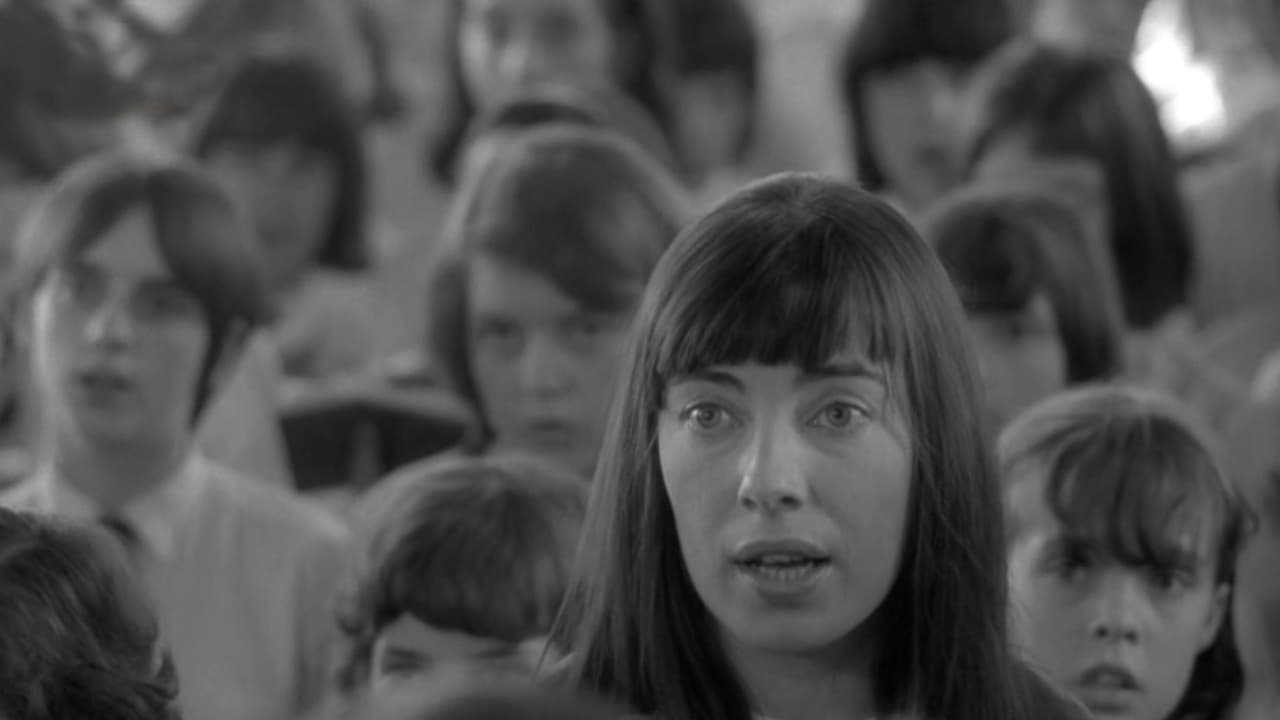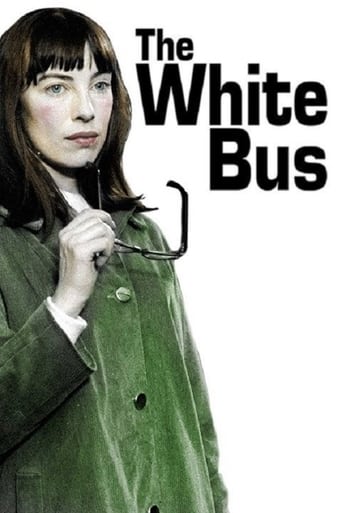

What makes it different from others?
... View Morean ambitious but ultimately ineffective debut endeavor.
... View MoreThis movie tries so hard to be funny, yet it falls flat every time. Just another example of recycled ideas repackaged with women in an attempt to appeal to a certain audience.
... View Morewhat a terribly boring film. I'm sorry but this is absolutely not deserving of best picture and will be forgotten quickly. Entertaining and engaging cinema? No. Nothing performances with flat faces and mistaking silence for subtlety.
... View MoreThe White Bus (a.k.a. Red, White and Zero) is a movie geared for adults. It deals with depressed thoughts. I found the film basically pointless and aimless and a waste of time to watch. The film is basically a black and white film with flashes of colorization for a few seconds and then black and white again. This happened several times throughout the movie. I found no purpose in this. Also, in the beginning, it seems that editing did not do its work well. There is a scene with the star hanging in her office for a few moments and was very disjointed. Don't waste your time with this film. There are many other better films to watch -- try attack of the killer tomatoes -- at least it's so stupid it's almost funny.
... View MoreThis review is for Red, White and Zero. It's possible to reconstruct the facts around this film, but the IMDb listing is confusing. Lindsay Anderson's The White Bus was briefly and unsuccessfully released with two other shorts: a very short film by Peter Brook featuring Zero Mostel in a hurry (The Ride of the Valkyries - lots of frantic mugging), and Red and Blue by Tony Richardson. Only Lindsay Anderson's film seems to be readily available. (The others would make good Criterion extras.)I saw Red, White and Zero on late night Australian television in 1984. The White Bus wasn't seen to best effect on the small screen - rather self-consciously poetic, but as an Anderson film it will obviously bear reseeing. Red and Blue was fascinating and not very good. Tony Richardson was in love with the Nouvelle Vague, and raided its box of tricks and its composers (Bassiak from Jules and Jim; Duhamel from Godard's Pierrot le Fou) in an imitation Demy/Moreau vehicle for Vanessa Redgrave! She fluted a song in English, and Kevin Brownlow provided the jumpcuts. (You can hear her singing Bassiak's Bonjour Papa on YouTube).Most weirdly, the sex interests for the romantically-besieged Vanessa were provided by Douglas Fairbanks Jr, William Sylvester (the scientist from Kubrick's 2001), and Michael York. The sparks didn't exactly fly. Anyway, after 30 years, it's time to make this available again.
... View MoreCute, whacky and beautifully shot surrealistic short from Lindsay Anderson which clearly foreshadows if.... which followed a year later (plus O Lucky Man and Brittania Hospital too). The same cinematographer as on if.... plus the mix of black and white and colour shots. Some key music sound cues from if... feature here for the first time plus the reading of the proverbs quote "wisdom is the principal thing..." which opens if....There's also a bit of M Hulot's theme from Mon Oncle mixed in there plus some classic Tati-esque visual humor. I guess Mr Anderson had a whole lot of stuff already brewing that would come flowing out in force a little later.Criterion definitely missed a trick not including this on the if.... DVD/Bluray - a little more relevant than the Oscar winning short about the deaf kids I'd say. All in all a charming, strange and chuckly way to spend forty minutes.
... View MoreWhen I think about The White Bus, I think about how thoughts and ambiance spontaneously go on, because they do here just as they do in a person's mind. When I caught myself, during and after watching it, trying to pigeonhole whether it was supposed to be a hallucination, pure free association or a stream of consciousness, I hearkened back to my first experience seeing a movie directed by Lindsay Anderson, If ., which was a more realistic story, yes, but had a dreamlike lack of reason or cohesion for its stylistic and visual changeovers. Likewise, The White Bus is just a chain of imagery. But what makes it a consistent piece? Somehow, it is. Because I followed it and enjoyed it.Maybe that goes to show that "invisible style," the avoidance of indulgent cinematography because a movie exposing itself diverts from the story, is not limited to the traditional studio era. The furthest extremities of avant-garde filmmaking can still be engrossing on that very level despite being so exuberantly stylized and even seemingly fragmentary. Regardless, The White Bus, like If ., is a blurring of various lines.Lindsay Anderson and Shelagh Delaney's The White Bus is a dreamlike film about a secretary who takes a bizarre trip, part of which is set on the eponymous means of transportation. The anonymous woman has an apparently monotonous life, which is disrupted by episodic departures of imagination featuring suicide, recreations of paintings, and slices of meat that abruptly run blood-red. Flanked by these visions are the minutiae of her real life, particularly as she starts a passage home to pop in on her family. She comes across an eclectic assortment of people, an adolescent extremely annoyed that his rugby team lost, a young man who proposes marriage, a lord mayor who takes pleasure in feeling her leg, and more as she traverses to sites reaching from a community center and a public library to a natural history museum and a civil defense display. Throughout, the girl upholds a pretense of apathy or disregard, even when proceedings grow fairly unreal, as when all of her itinerant companions become human dummies in the course of the civil defense exercise. Ultimately, she enters a restaurant and eats dinner while the owners stack chairs around her, shrouding her from view and grumbling about the boundless movement of work.So we leave having experienced the incessant tide of observation, feelings, mindset and recollections in an uninterrupted, even rambling manner of visual soliloquy. But so many transitions and scenes lack outside motivation, and yet somehow have the characteristics of real experiences in that they're lucid, significant and seen in the objective outside world. Is that not hallucination? Could they be real perceptions that are delusional, accurately seen things and people given extra implications? People are frequently at odds with their necessity to be secure with themselves and their suspicions of and resistance to change and self-exposure, intentional or not. There is no linear premeditation, just spontaneous bounds and connections that potentially bring about new individual revelations and values: the sense of overtone and suggestion are a sort of thinking id. That's what I admire about The White Bus.
... View More